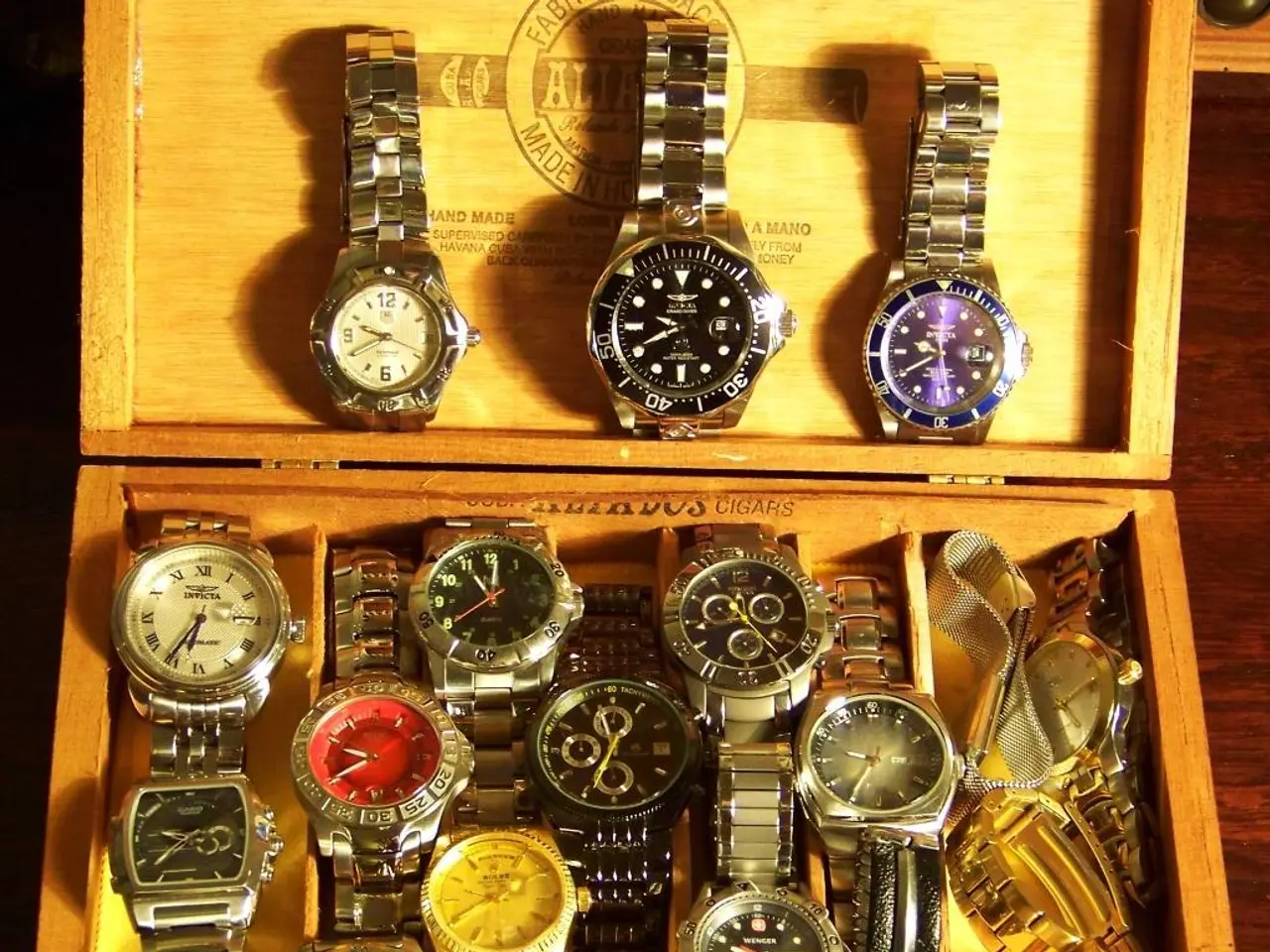U.S. tariff hike impacts Watches of Switzerland, causing share decrease
The Trump administration's recent imposition of a 39% ad valorem tariff on Swiss imports, including watches, is set to have a significant negative impact on Swiss watch exports to the U.S. and companies like Watches of Switzerland. This tariff, effective August 7, 2025, affects Swiss timepieces, a category worth over $6 billion in U.S. imports in 2024.
For Swiss watchmakers, including major luxury brands such as Rolex, Patek Philippe, and Omega, the tariff means increased costs that may be passed to retailers and consumers or absorbed, squeezing profit margins. Smaller independent Swiss brands could be disproportionately hurt, potentially losing market share in the U.S. due to higher retail prices.
Watches of Switzerland, a key retailer and distributor of Swiss luxury watches in the U.S., will likely face pressure from these tariffs. Higher wholesale costs and retail prices could reduce demand or push buyers towards the secondary watch market. Retail prices for watches, including Rolex, are already reported to be rising by up to 15% in anticipation of the tariffs.
The tariffs revive fears of renewed price increases for consumers, most obviously in the U.S. but potentially around the world too. Chris Beauchamp, chief market analyst at IG, stated that the tariffs could disrupt the U.S. market for Swiss watches for some time, reminiscent of protectionist measures seen historically.
The US market is the biggest global market for luxury watches and was the biggest driver of the overall decline in sales. Last year, the US had a CHF 38.5bn (£33.9bn) trade deficit with Switzerland. The Federation of the Swiss Watch Industry (FH) reported the decline in sales, suggesting a potential long-term challenge for the Swiss watch industry due to the tariffs.
In the last six months, Watches of Switzerland's share price has dropped more than 42%. Since April 2, the share price has fallen by 23%. The decline in sales and share price of Watches of Switzerland may indicate a broader struggle in the watch industry due to the tariffs. Watches of Switzerland had been relying on a boost in US demand, which was its core driver in the six months preceding the tariffs.
The tariffs announced by Trump have had a significant impact on the share price of Watches of Switzerland. Exports of watches to the US fell 9.5% in June compared to May, according to the Federation of the Swiss Watch Industry (FH). Switzerland was singled out by Trump earlier this year as one of the worst culprits of unfair trade with America.
Peel Hunt has warned that US watch prices could increase by 10 to 15 percent as a result of the initial 31 percent tariff, a figure which will be even higher now. The US market is the biggest global market for luxury watches, and the tariffs may have a significant impact given its status. RBC analysts have pointed out that the watch firm has lower margins than competitors, making it more difficult to respond to tariffs.
In conclusion, the 39% tariff substantially increases the cost for Swiss watch exports and threatens to reduce volume and sales growth in the U.S. market, impacting both manufacturers and resellers like Watches of Switzerland through higher prices and potential shifts in consumer behavior. Collectors and retailers might accelerate purchases before the new fees take effect, but the tariffs add a new layer of trade friction that could disrupt the U.S. market for Swiss watches for some time.
- The tariff on Swiss watch imports, which affects companies like Watches of Switzerland and includes luxury brands such as Rolex, Patek Philippe, and Omega, could lead to increased costs that might be passed to investors and consumers, potentially impacting the business profitability of Swiss watchmakers.
- The US market, being the biggest global market for luxury watches, faces the risk of disrupted business due to the 39% tariff on Swiss watches, as the tariffs could increase retail prices, reduce demand, and potentially divert buyers towards the secondary watch market. This could have a significant negative impact on retailers and distributors like Watches of Switzerland.




